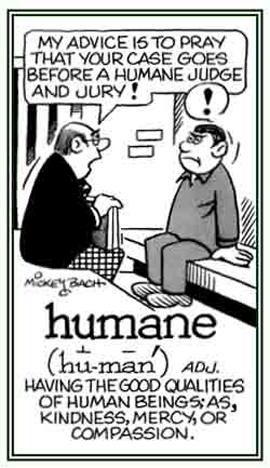homo-, hom-, hum-
(Latin: human beings, mankind; literally, "man, men"; however, it now also includes, "woman, women" or all of humanity)
This Latin homo- is related to humus, "earth" or "born" and so it is said to mean "earthly being" or "born of the earth" and it refers to all of humanity. Don't confuse this Latin homo- with the Greek homo- that means "same" or "equal".
homiculture (verb), homicultures; homicultured; homiculturing
1. The physical cultivation or development of mankind.
2. Eugenics; the physical improvement of mankind.
2. Eugenics; the physical improvement of mankind.
1. A primate of the family Hominidae, from which the modern human, Homo sapiens, is the only extant species.
2. All of the great apes; from which chimpanzees, gorillas, orangutans, and humans belong.
2. All of the great apes; from which chimpanzees, gorillas, orangutans, and humans belong.
hominivorus (adjective), more hominivorus, most hominivorus
Descriptive of the consumption, feeding upon, or devouring of human beings.
hominoid (adjective), more hominoid, most hominoid
1. A reference to the human form; man-like (rather than ape-like).
2. Descriptive of an animal resembling a human being.
3. Relating to the superfamily Hominoidea, which includes the apes and humans.
2. Descriptive of an animal resembling a human being.
3. Relating to the superfamily Hominoidea, which includes the apes and humans.
The evolutionary development of characteristics; especially, mental or spiritual ones that distinguish humans from other animals.
Literally, "upright man"; an extinct ancestor of the modern human being (Homo sapiens) living approximately 1.5 million years ago and known by fossils to have had an upright stature, a smallish brain, and a low forehead.
Homo habilis
Literally, "skillful man"; an extinct ancestor of the modern human being (Homo sapiens) living approximately 1.5 million years ago and charactherized its ability to make and use tools.
Homo sapiens
Literally "wise man"; the modern human being, the only extant species of the genus, or family, that also included other species named Homo. Of the family, Hominidae.
homunculus
1. A diminutive or dwarfish man.
2. A person who is very small but who is not otherwise deformed or abnormal.
2. A person who is very small but who is not otherwise deformed or abnormal.
1. The form, nature, or qualities that are typical of people.
2. Essentially a classifying term relating to members of the genus Homo and especially of the species Homo sapiens: A human is a bi pedaling primate using a language and having the ability to make and to use complex tools.
3. Etymology: from Old French humain from Latin humanus.
2. Essentially a classifying term relating to members of the genus Homo and especially of the species Homo sapiens: A human is a bi pedaling primate using a language and having the ability to make and to use complex tools.
3. Etymology: from Old French humain from Latin humanus.
Like homo, "person" (man, woman, child), this was related to Latin humus, "earth", and was used originally for "people" in the sense of "earthly beings" in contrast with the immortal gods.
human (adjective), more human, most human
1. Of, relating to, or affecting people: The human body and the human brain both have an affect on a person's health and well-being.
2. Pertaining to that which is typical of people: Mark has a desire to be perfect; however, he now realizes that he has many of the same human weaknesses, problems, etc, that other men, women and children have.
2. Pertaining to that which is typical of people: Mark has a desire to be perfect; however, he now realizes that he has many of the same human weaknesses, problems, etc, that other men, women and children have.
Physical beings which are made up of systems that consist of organs, of tissues, and of cells.
human relations
1. The study of group behavior for the purpose of improving interpersonal relationships, as among employees.
2. The social and interpersonal relations between human beings.
2. The social and interpersonal relations between human beings.
humane (adjective); more humane, most humane
1. Characterized by kindness, mercy, or compassion: Monroe's wife was expressing her humane concern for his terrible vertebrae pain when she called the ambulance to take him to the hospital.
2. Relating to someone who demonstrates the better aspects of the human character; especially, kindness and compassion: Lynn's father was a very humane person, always showing and acting in a gentle, sympathetic, and understanding manner.

© ALL rights are reserved.
Go to this Word A Day Revisited Index
2. Relating to someone who demonstrates the better aspects of the human character; especially, kindness and compassion: Lynn's father was a very humane person, always showing and acting in a gentle, sympathetic, and understanding manner.

Go to this Word A Day Revisited Index
so you can see more of Mickey Bach's cartoons.
humanely


